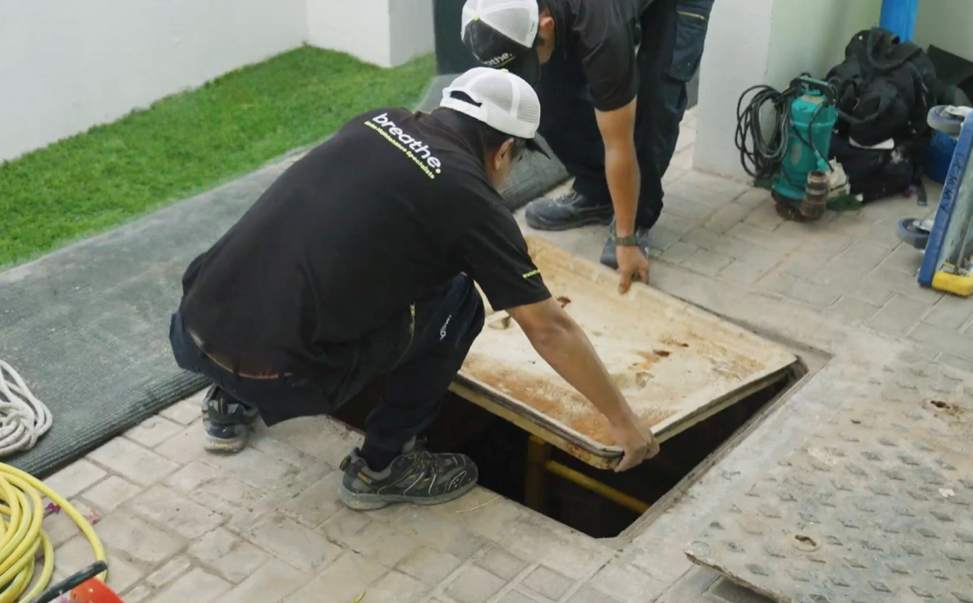Thankfully, we’re starting to move out of the hottest Dubai months and as the sweltering heat begins to recede, property owners and tenants are probably looking forward to a decrease in air conditioning service costs and bills.
This seasonal shift is a good time to look at another critical aspect of property maintenance – water tank cleaning.
While these units may be out of sight and therefore out of mind, neglecting them can lead to significant long-term implications, both financially and health-wise.
Why is water tank maintenance important?
Over time, water tanks accumulate sediments, debris, and microorganisms, which can contaminate the water and cause various issues. Regular cleaning and maintenance are therefore crucial to prevent these problems and ensure the safety and efficiency of the water supply.
The health risks of ignoring maintenance…
Contaminated water can harbour harmful bacteria, viruses, and parasites, leading to serious illnesses such as gastrointestinal infections, skin diseases, and respiratory problems. Legionella (the bacterium that causes Legionnaires’ disease) thrives in dirty water tanks and can lead to severe respiratory issues, especially in vulnerable populations like the elderly and those with weakened immune systems.
The financial risks of ignoring maintenance…
While the immediate cost of professional water tank cleaning might seem like an expense, the long-term financial implications of not doing it are far greater. Dirty water can damage appliances and plumbing systems, leading to costly repairs or replacements. For instance, sediment buildup can clog pipes, reduce water pressure, and damage water heaters. Moreover, the health risks associated with contaminated water can lead to medical expenses and potential legal liabilities, especially for landlords and property managers responsible for ensuring a safe living environment.
Then there’s the environment.
There are good environmental reasons for water tank cleaning too. Efficient water systems reduce waste and promote sustainable water use. Regular maintenance prevents leaks and overflows, conserving water, and minimising the environmental footprint of a property.
What are the best practices for water tank maintenance?
Schedule regular cleanings: Professional cleaning services should be scheduled at least once a year, though more frequent cleanings may be necessary for high-use buildings or those with known water quality issues.
Inspect and maintain components: Regularly inspect the tank, pipes, and valves for signs of wear, damage, or leaks. Ensure that all components are in good working condition to prevent contamination.
Monitor water quality: Regularly test the water for contaminants and take immediate action if any issues are detected. Implement water purification systems if necessary.
In short, by prioritising timely water tank maintenance and sticking to best practices, property owners can ensure a safe, efficient, and sustainable water supply.
Interested in getting your water tank cleaned? Talk to our team


